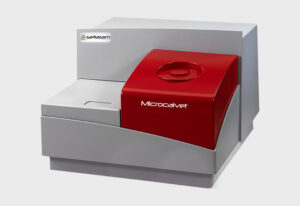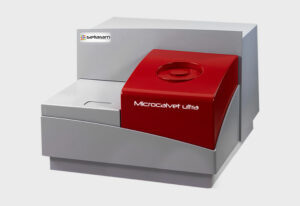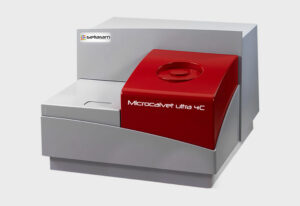MICROCALVET calorimeters
The MICROCALVET line of microcalorimeters provides the highest measurement sensitivity. Their versatile design enables the testing of solids, liquids, gels or powders and other capabilities like mixing or high pressure.

Calorimeters for Superior Sensitivity
The MICROCALVET line calorimeters combine the highest sensitivity and the most accurate measurements of Heat, Heat Flow and Heat Capacity (Cp). For that purpose, they use the latest evolution of the 3D sensor design in which cells are surrounded by semiconductor-based Peltier elements.
Heat measurement is not only as efficient as standard 3D sensor designs, it also becomes ultrasensitive. MICROCALVET line sensors use a reliable electrical calibration called Joule effect. This unique combination of sensor efficiency and calibration reliability provides an unparalleled measurement accuracy.
Not sure what you need ?
Ask our team or try our Engineering & Consultancy services



